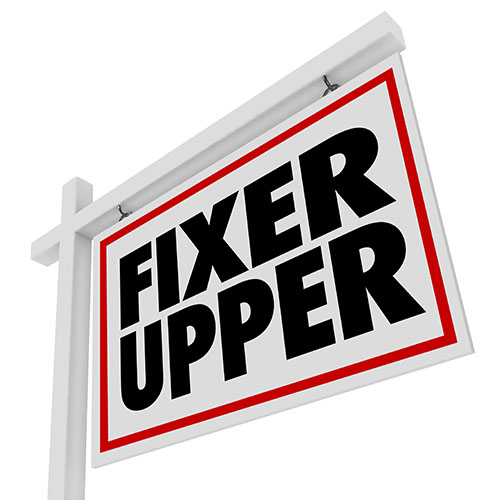 Last week’s scheduled economic reporting included readings on U.S. Housing markets, housing starts, and building permits issued. Weekly reports on new and continuing jobless claims and mortgage rates were also released.
Last week’s scheduled economic reporting included readings on U.S. Housing markets, housing starts, and building permits issued. Weekly reports on new and continuing jobless claims and mortgage rates were also released.
NAHB: Builder Confidence in Housing Market Recovers in June
Analysts cited slim supplies of available homes, tight housing markets, and low mortgage rates as drivers of new home sales. Builder confidence in current housing market conditions rose 21 points to an index reading of 58 in June; builder confidence in housing market conditions in the next six months rose 22 points to 68.
Builder confidence in buyer traffic in new single-family housing developments rose from May’s index reading of 21 to 43 in June. Readings for buyer traffic are typically lower than the benchmark reading of 50.
Readings over 50 indicate that most builders are confident about housing market conditions and component readings of the Housing Market Index. Prospective home buyers continued to face obstacles of high unemployment and loss of income due to the coronavirus pandemic; these factors will likely impact builder confidence for months ahead as impacts of the pandemic change.
Housing Starts, Building Permits Issued Increase in May
The Commerce Department reported 974,000 housing starts on a seasonally-adjusted annual basis in May as compared to a pace of 934,000 housing starts reported in April. Building permits issued in May rose to 1.22 million permits issued on an annual basis from April’s pace of 1.07 million permits issued. Analysts expected 1.25 million permits to be issued in May on an annual basis.
Mortgage Rates Hit All-Time Low as Jobless Claims Decrease
Freddie Mac reported lower mortgage rates that were the lowest mortgage rates recorded. The average rate for a 30-year fixed-rate mortgage was eight basis points lower at 3.13 percent; interest rates for 15-year fixed-rate mortgages averaged 2.58 percent and were four basis points lower than for the prior week. Interest rates for 5/1 adjustable-rate mortgages averaged one basis point lower at 3.09 percent. Discount points averaged 0.80 percent for fixed-rate mortgages and 0.40 percent for 5/1 adjustable-rate mortgages.
First-time jobless claims fell to 1.51 million claims last week as compared to the prior week’s reading of 1.57 million initial claims filed. Continuing jobless claims also fell; 20.50 million claims were reported as compared to 20.60 million ongoing jobless claims reported the prior week.
What’s Ahead
This week’s scheduled economic reports include reports on sales of new and previously-owned homes, FHFA’s Home Price Index, and the University of Michigan’s consumer sentiment index.
 Every now and then when a person is selling their home, a cash buyer comes into the equation. If you have listed your home for sale and your real estate agent has informed you that a cash buyer is interested, you will want to understand how this affects the potential sale.
Every now and then when a person is selling their home, a cash buyer comes into the equation. If you have listed your home for sale and your real estate agent has informed you that a cash buyer is interested, you will want to understand how this affects the potential sale.  Moving with pets can be strenuous, especially for the pet. Oftentimes pets might even go missing on moving day or shortly before or after. Many pets, such as dogs and cats, are sensitive and acutely aware of when big changes are taking place within the home.
Moving with pets can be strenuous, especially for the pet. Oftentimes pets might even go missing on moving day or shortly before or after. Many pets, such as dogs and cats, are sensitive and acutely aware of when big changes are taking place within the home. If you’ve expressed any interest in buying a home that you can work on, your real estate agent may present you with one or two fixer upper properties for your consideration. Fixer upper homes can offer good value for certain kinds of homebuyers.
If you’ve expressed any interest in buying a home that you can work on, your real estate agent may present you with one or two fixer upper properties for your consideration. Fixer upper homes can offer good value for certain kinds of homebuyers. If you are planning to buy or sell a home, you will want to enlist the services of a real estate agent. But sometimes homebuyers and homeowners worry about paying for the services of a real estate agent.
If you are planning to buy or sell a home, you will want to enlist the services of a real estate agent. But sometimes homebuyers and homeowners worry about paying for the services of a real estate agent. Last week’s economic reporting included readings on inflation, the post-meeting statement from the Fed’s Federal Open Market Committee, and consumer sentiment. Weekly readings on mortgage rates and jobless claims were also released.
Last week’s economic reporting included readings on inflation, the post-meeting statement from the Fed’s Federal Open Market Committee, and consumer sentiment. Weekly readings on mortgage rates and jobless claims were also released.